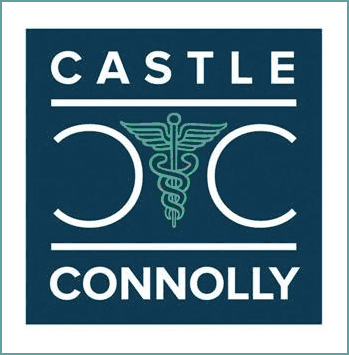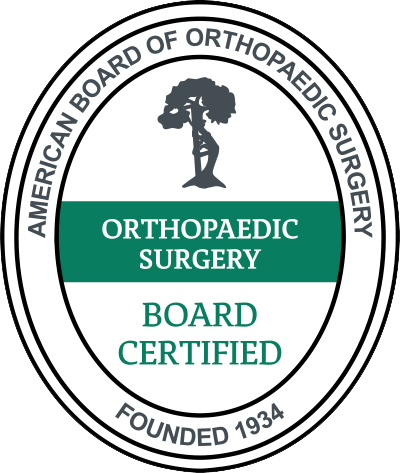
Frozen Shoulder and Hip Pain in Menopause: A Guide to Relief and Support
Find relief from frozen shoulder and hip pain during menopause. Learn about causes, treatments, and lifestyle tips to move comfortably again.

Find relief from frozen shoulder and hip pain during menopause. Learn about causes, treatments, and lifestyle tips to move comfortably again.

Every day, people visit orthopedic surgeons complaining of hip pain but often, what they’re feeling isn’t coming from the hip joint at all. Surprised? It’s because what many people refer to as their “hip” is actually a different part of the body.

Arthritis and osteoarthritis are often used interchangeably but are distinct conditions with different causes, symptoms, and treatments. Understanding the nuances of each helps you better manage your joint health.Arthritis, a comprehensive term, encompasses a spectrum of conditions characterized by inflammation of the joints. There are over 100 types of arthritis, including osteoarthritis, rheumatoid arthritis, and psoriatic arthritis, among others. The common denominator among these inflammatory conditions is joint pain, stiffness, swelling, and decreased range of motion.Osteoarthritis is the most prevalent form of arthritis and typically develops with age or as a result of joint injury or obesity. It occurs when the protective cartilage that cushions the ends of bones wears down over time, leading to bone-on-bone contact, inflammation, and pain. Osteoarthritis commonly affects weight-bearing joints like the knees, hips, and spine.Distinguishing between arthritis and osteoarthritis is crucial for accurate diagnosis and effective treatment. While arthritis encompasses a broad spectrum of joint disorders, osteoarthritis specifically refers to the degenerative wear-and-tear of cartilage.Treatment approaches for arthritis and osteoarthritis vary depending on the underlying cause and severity of symptoms. Non-surgical interventions such as lifestyle modifications, physical therapy, medications, and injections may provide relief for mild to moderate cases. However, in severe or advanced osteoarthritis cases where conservative measures fail to alleviate symptoms, surgical options like joint replacement surgery may be considered to restore mobility and quality of life.At OrthoConnecticut, our team of orthopedic specialists is dedicated to diagnosing and treating arthritis and osteoarthritis with personalized care plans tailored to each patient’s unique needs. Whether you’re experiencing joint pain, stiffness, or swelling, we’re here to help you find relief and regain function.If you’re struggling with joint pain or suspect you may have arthritis or osteoarthritis, don’t hesitate to contact us. Schedule a consultation with one of our experienced orthopedic providers to explore your treatment options and take

Recognizing the early signs of hip problems is crucial for timely intervention and effective treatment. The hip joint plays a vital role in mobility and bears a significant amount of weight, making it susceptible to various conditions. By understanding the initial signs, you can take proactive steps to address hip issues before they worsen. In this article, we will explore the common early signs of hip problems and the importance of seeking medical attention for accurate diagnosis and appropriate treatment. The First Signs of Hip Problems Recognizing the early signs of hip problems is crucial for early intervention and appropriate treatment. The hip joint is essential for mobility and bears a significant amount of weight, making it susceptible to various conditions. By understanding the initial signs, you can take proactive steps to address hip issues before they worsen. Common early signs of hip problems that you should be aware of are: If you notice any of these early signs of hip problems, it is important to consult a healthcare professional, such as an orthopedic specialist, for a comprehensive evaluation. They can perform a physical examination, order diagnostic tests if necessary, and provide an accurate diagnosis. Early intervention and appropriate treatment can help manage hip problems effectively, alleviate pain, and improve your quality of life. Where Do You Feel Pain if Your Hip is Bad? If you’re experiencing hip problems, you may feel pain in different areas associated with the hip joint. The location of the pain can vary depending on the underlying cause. One common area is the groin, where you may feel deep pain that radiates down the thigh or buttock. Additionally, pain can be felt on the outer side of the hip, known as the lateral hip, or in the buttocks. Some hip conditions may cause pain that

Key Takeaways Many patients describe being unable to get comfortable at night due to burning pain in their hip, only to find out it’s actually a nerve issue in the back. This article is for those experiencing hip or leg pain who are unsure whether it might be sciatica. What is Sciatica? Your hip joints, like your knee and ankle joints, are highly active joints that debilitate with age, causing you pain. More often than not, hip pain may not be related to your hips but could be traced to a pinched nerve in your lower back leading to pain going down the leg, commonly referred to as Sciatica. Though you might experience a sharp and shooting pain in the hip for many reasons, sciatica is one of the most common. The pain which travels along the neural pathway, usually results from compression or irritation of the nerve in the spine either from spinal bone spur, herniated disk, or other soft tissues. Sciatic nerve pain, which radiates from the lower back to the hips, buttocks and all the way to your toes, can be unbearable. Hip pain can also be a referred pain from arthritis in your low back. Sciatic pain can sometimes be so oppressive and incapacitating that you may not feel like standing up if you’re sitting, or getting out of bed. The majority of cases and episodes of sciatica do not need surgical intervention as the severe pain subsides slowly and gradually either on its own, or through other conservative measures. Can Sciatica Cause Hip Pain? Pain or ache in the hip area occurs typically because of arthritis or wear and tear of the hip joint. Sciatic pain or irritation of the sciatic nerve could happen due to the nerve roots’ compression originating from the lumbar spine.

Today’s Hip Replacements Have Shorter Recovery Times and Longer-Lasting Results If you suffer from persistent hip pain due to osteoarthritis, rheumatoid arthritis, an injury, or joint deterioration, a hip replacement could both relieve pain and improve mobility. During the procedure, your damaged hip joint is replaced with implants that recreate the ball and socket of a healthy hip. Most patients can return to an active lifestyle after hip replacement, often becoming more mobile than they had been for years while suffering from hip pain.
Call OrthoConnecticut today at 1.833.678.4628 to learn more or to schedule an appointment.
Accessibility statement
for individuals with disabilities:
We are committed to ensuring that our website and mobile applications are accessible to individuals with disabilities. Please use the blue icon in the lower right corner to access many helpful tools. If you need assistance using our website, or assistance with a document on the website, we can help you. Please contact us by email at info@myorthoct.com or by telephone at 1.833.ORTHOCT (1.833.678.4628).
1.833.ORTHOCT
(1.833.678.4628)



Accessibility statement
for individuals with disabilities:
We are committed to ensuring that our website and mobile applications are accessible to individuals with disabilities. Please use the blue icon in the lower right corner to access many helpful tools. If you need assistance using our website, or assistance with a document on the website, we can help you. Please contact us by email at info@myorthoct.com or by telephone at 1.833.ORTHOCT (1.833.678.4628).
We are committed to providing comprehensive care to Fairfield County, New Haven County, Litchfield County; New York State's Westchester, Dutchess, & Putnam Counties; and the Great Barrington region of Massachusetts.
This website provides general information about OrthoConnecticut, its practice areas and professional staff. Nothing in this website constitutes individual medical advice which may only be obtained as a result of personal consultation with a physician. Sending an e-mail to OrthoConnecticut, its physicians or office staff does not create a patient-physician relationship.
© 2025 OrthoConnecticut | Accessibility Statement | Site Map | Terms of Use | Non-Discrimination Policy | Website Design: Brandmark Studios